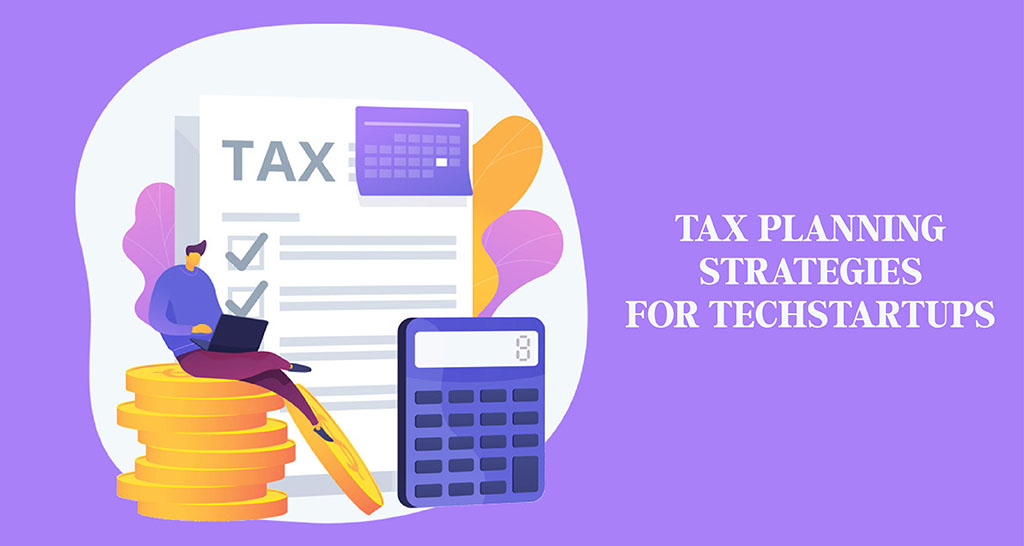Tax planning is a vital component of any small business. Planning and using the right methods ensures your company is organised and compliant with current tax laws. A recent study also highlighted reasons for efficient tax planning, such as saving time and error reduction, which allows business growth and decreases your overall tax liability.
Are you looking to build an effective financial plan or prevent significantly overpaying the tax bill at the end of the year? Here are tax planning strategies that every tech startup should consider.
Tax planning strategies for tech startups
Entity structure matters
Selecting an appropriate legal structure for a new company is the foundation of successful tax planning. Common options involve sole proprietorships, LLCs, partnerships, and corporations.
Each has its tax consequences. For many tech startups, creating a Limited Liability Company (LLC) or a C Corporation offers tax advantages, like profit distribution adaptability and potential investor funding opportunities.
Use tax software
Tax software can assist in ensuring precision with your tax returns. It can assist you in effortlessly and quickly file taxes while guiding deductions, credits, and other tax-saving tactics. Efficient tax software will help you track your business’s cash flow, track deductions, and find areas to boost profits. However, selecting one designed for startups with the needed features is essential for getting the best results.
Using the right tax software can make it simpler to get ready for tax season and can save you both time and cash.
Claim R&D tax relief.
Every company encounters technical difficulties, and if you are paying technical employees to solve this problem, you can likely minimise your corporation tax or claim a tax refund.
The tax reduction can be around £25,000 for each £100,000 spent on innovation. There are several opportunities for getting Research and Development Allowances to pay for research facilities and supplies.
Employee benefits and equity compensation
Tech startups commonly draw in talent through equity compensation plans, like stock grants or restricted stock units (RSUs). Organising these equity compensation plans effectively can result in tax benefits for the startup and its employees. In addition, providing tax-efficient employee benefits, like health savings accounts (HSAs) and retirement plans, can be a helpful attraction and retention tool.
Record keeping and compliance
In tax preparation for tech startups, keeping meticulous records and adhering to compliance standards corresponds to the foundation of a strong business. It’s an essential component that underpins all other tax strategies.
Tech startups produce an array of financial activities daily, from revenue and expenses to payroll and expenditures. Keeping precise and structured records of these activities is vital. It supports correct tax reporting and fosters openness and accountability inside the organisation.
Compliance with tax laws and deadlines is non-negotiable. Tax authorities anticipate timely and precise tax filings and any lapses will result in penalties and fines that can affect the company’s financial condition.
Take advantage of startup deductions.
For tech startups, where every penny counts, leveraging startup deductions can make a significant difference in managing initial costs and optimising cash flow.
Startup expenses can accumulate rapidly, encompassing legal fees, incorporation costs, marketing expenditures, and more. To alleviate the financial burden of these essential early-stage investments, startups can tap into various tax deductions.
One of the most notable deductions is the deduction for organisational costs, which covers expenses related to setting up the business entity. This can include legal fees, paperwork filing fees, and even the costs incurred in creating the company’s business plan. Startups can deduct up to a specified limit, providing immediate relief on these initial expenses.
Lean on professional expertise.
Navigating the complex financial landscape of tax planning for tech startups is a challenging task, and it’s one where looking for professional expertise can make a substantial difference. In the changing world of entrepreneurship, where creativity and expansion are essential, startups often benefit significantly from collaborating with accountants or experts who concentrate on startup taxation.
These experts have in-depth knowledge of the complex tax laws and incentives that apply specifically to startups. They are knowledgeable about the intricacies of entity selection, deductions, credits, and compliance requirements that can have a big impact on the financial health of a firm.
Final thoughts
In conclusion, efficient financial management of a firm requires careful consideration of tax planning. You can improve your startup’s financial health and dedicate more funds to innovation and growth by carefully assessing your organisation structure, utilising tax benefits, and remaining current on tax laws.
Collaborating with startup accountants who know the unique challenges of tech startups can be an effective investment in your business’s success.

